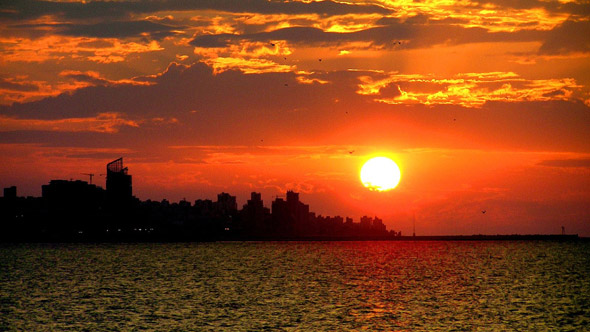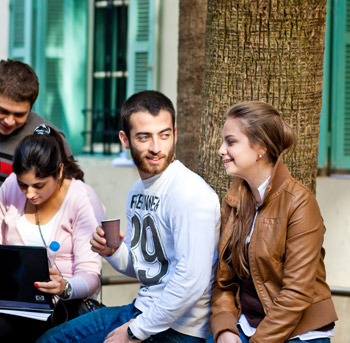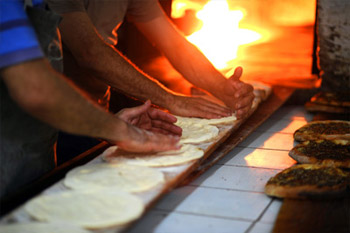Lebanon: Foreign Direct Investment Report
People who seek an attractive rate of return in Lebanon should have a good knowledge of the different sectors, patience and a head for surprises.

Lebanon: Foreign Direct Investment Report 2012
People who seek an attractive rate of return in Lebanon should have a good knowledge of the different sectors, patience and a head for surprises.
At a first glance there do not seem to be too many reasons to invest in Lebanon. However, according to Nabil Itani, Chairman and General Manager of the Investment Authority of Lebanon, known as IDAL, the Levantine state is better than its reputation. “Regarding instability in the region, you know that the country is located in an area that is unstable. In Lebanon we have the basic fundamentals for sound investment inflows,” said Itani.
Lebanon is in urgent need of foreign investments (FDI): oil and gas have been discovered offshore but the hidden treasures under the  Mediterranean Sea have yet to be explored, the national debt-to-GDP ratio stands at a whopping 130% and unemployment is high, with estimates suggesting that up to 30 per cent of young professionals have no regular income (ironically, Beirut’s hotels mostly employ armies of expatriates from Asian and African countries).
Mediterranean Sea have yet to be explored, the national debt-to-GDP ratio stands at a whopping 130% and unemployment is high, with estimates suggesting that up to 30 per cent of young professionals have no regular income (ironically, Beirut’s hotels mostly employ armies of expatriates from Asian and African countries).
Itani, however, believes that Lebanon’s greatest asset is its people. “We have an 80-90% literacy rate in Lebanon, and you can access these skilled human resources easily and at a very competitive cost.” Lebanon ranked 12th globally in the overall quality of education, and 6th globally in the quality of math and science education. Lebanon ranked 3rd in the MENA region in the ICT Development skills index which captures ICT skills and capabilities.
In their country analyses, foreign banks always stress the fact that Lebanon has one of the freest economies in the region and every government respects the country’s traditional laissez-faire, laissez-aller politics.
Nabil Itani’s mission is to convince investors that against all the odds, an investment into Lebanon will pay off. That mission has become more tricky over the last two years, as Dubai, being a politically stable and economically liberal hub bridging East Asia and Europe, has attracted capital and companies like a magnet; another reason is that Gulf emirate benefited from the Arab Spring.
IDAL was established in 1994 by a decree from the Lebanese Council of Ministers with the purpose of spearheading Lebanon’s investment promotion efforts. Itani points out that Lebanon’s strong sectors also unveil weak points. “Some areas in the MICE tourism sector (conferences and exhibitions) are good, there is Forum Beirut in BIEL, but we need more infrastructure for these sectors.”
Lebanon is in urgent need of foreign investments: oil and gas have been discovered offshore but the hidden treasures under the Mediterranean Sea have yet to be explored, the national debt-to-GDP ratio stands at a whopping 130% and unemployment is high, with estimates suggesting that up to 30 per cent of young professionals have no regular income.
Indeed, a drive by taxi or limousine from Rafic Hariri International Airport to Beirut Central District can take an hour during the rush hour due to the absence of a well-organized public transport system, the lack of sufficient roads and because a metro remains a utopian dream.
Unfortunately, not all regions benefit equally from the flow of foreign investments. “Law 360, the Investment Law of Lebanon, was enacted in 2001,” said Itani. “Over these ten years we have noticed in our practice of this law that there is a demand in some areas, because our law has two main aims: job creation and balance development. After practising the law for ten years we have noticed that the huge projects, or 80% of these projects, are located in Beirut and Mount Lebanon, which is close to the capital Beirut.”
The people of Lebanon can be tough negotiators, but are also loyal business partners. The easiest way to invest in Lebanon is to buy shares listed on the Beirut Stock Exchange (BSE). Founded in 1920, the BSE is the third oldest capital market in the region, after Alexandria (1883) and Cairo (1903).
The market’s trading activity is dominated by Solidere, the company that is spearheading the rebuilding of Beirut Central District. Shares of Solidere are also traded on the London Stock Exchange and on the largest German bourse in Frankfurt/Main. A total of 10 companies are listed in Beirut.
On August 16, 2001, IDAL’s role was reinforced by the enactment of the Investment Development Law 360, which regulated investment promotion of domestic and foreign entities and strove to stimulate  Lebanon’s economic and social development as well as enhance its competitiveness.
Lebanon’s economic and social development as well as enhance its competitiveness.
Dubai built its success on over 20 free zones; Lebanon aims to emulate this business model.
“We began with a pilot project in Tripoli, a special Economic Zone,” said Itani. “We prepared a very big project for Lebanon and we asked with the government to create more than one Economic Zone depending on sector or regional demand, because we have a project called the Beirut Technology Zone in Damour, and we are trying to do one in downtown Beirut. For industries targeting exports, we have already established the Tripoli Zone. It is in a phase of enacting decrees and I think this will be a pilot project for other projects in Lebanon.”
In addition, Beirut is keen to present itself as a clean financial center, also because it must protect its strong banking sector. On September 16, the Lebanese daily, The Daily Star, reported that central bank governor Riad Salameh had said the government was set to introduce amendments to existing anti-money-laundering laws to better combat terrorism funding and to improve trust among foreign investors in the Levantine state. “These amendments are designed to buttress the monitoring of terrorism funding in accordance with the Lebanese laws and to organize the cross-border currency movement,” The Daily Star quoted Salameh, without elaborating on the announced measures.
Minister of Economy Nicolas Nahas said that Lebanon’s economy grew by 5.2% in 2011. “I think 2012 looks to be on the same path, or even better: if we take the first three months they have given a better signal than the first three months of 2011.”